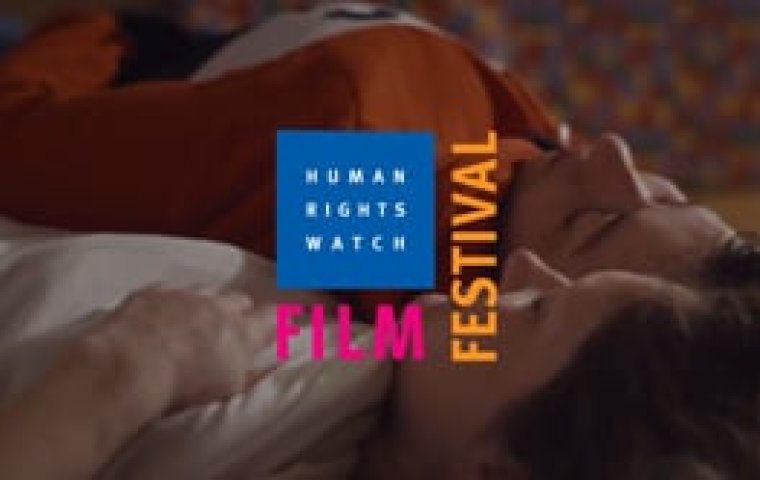This year’s edition covers a broad range of themes and topics, but what shines through is the determination and courage of individuals to stand up for their freedom and rights.
The festival presents 10 films screening in-person at the Barbican March 16 - 24 with in-depth Q&As with filmmakers, film participants, activists, and Human Rights Watch researchers following each screening; and the films will also be available digitally on our streaming platform across the UK and Ireland March 20 - 26.
Opening Night of the festival is Delikado, which profiles three magnetic leader—a charismatic lawyer, an ex-illegal logger, and a fearless politician—as they fight to stop corporations and governments seeking to plunder the natural resources of the island of Palawan in the Philippines.
The ongoing reverberations of colonialism take centre stage in two films in our program. Our Closing Night film, Theatre of Violence, raises complex questions around new forms of colonialism and definitions of justice in the landmark International Criminal Court trial of former Ugandan child soldier Daniel Ongwen. In No U-Turn, Nigerian filmmaker Ike Nnaebue takes us on a poetic and personal journey, engaging with those leaving their country, traveling north through Africa and beyond in search of work and opportunity to build a future, despite the known and unknown challenges lying ahead.
Body autonomy and self-autonomy is the focus of four films in this year’s program. Category: Woman, asks, “What happens when sexism and racism collide?”—introducing us to four women athletes from the Global South 70 / 90
stepping forward to challenge major international sports rules governing women athletes’ bodies. In I Didn’t See You There, filmmaker Reid Davenport reflects on the corrosive legacy of the “freak show” and the paradoxical spectacle yet invisibility of disability. Koromousso, Big Sister captures personal stories and deep moments of support in a small community of women from West Africa, as they confront social norms and embrace the inherent power in pleasure and love for their own bodies. Seven Winters in Tehran opens a window into the mass oppression and silencing of women in Iran, and the risks taken by those who defend and support them.
Structural discrimination is the focus of two films in the program. If The Streets Were on Fire introduces BikeStormz; a movement of young bikers, which attempts to offer a safe and welcoming space for youth in London. However, new forms of conflict arise when police and “concerned citizens” threaten arrest for their very existence. Silent Love is a coming-of-age and a coming-out story. We meet Aga, 35, who is legally adopting her teenage brother, Milosz, after their mother’s death—a process that invites intense probing into her lifestyle. However, there’s something she can’t share in their conservative Polish village: her long-term relationship with her girlfriend Maja.
The festival also takes a close look at Ukraine with When Spring Came to Bucha, which poignantly captures how a small community continues with life amid trauma and loss, while war rages on close by.
This year’s program reflects the festival’s ethos of celebrating diversity of content and perspective. We strive to prioritise space in our films and conversations that follow for identities, viewpoints, forms of expertise and experiences either silenced or marginalised in the film industry, news, and media.
We welcome you to join us in celebrating the power of individuals to make a difference at this year’s Human Rights Watch Film Festival.
